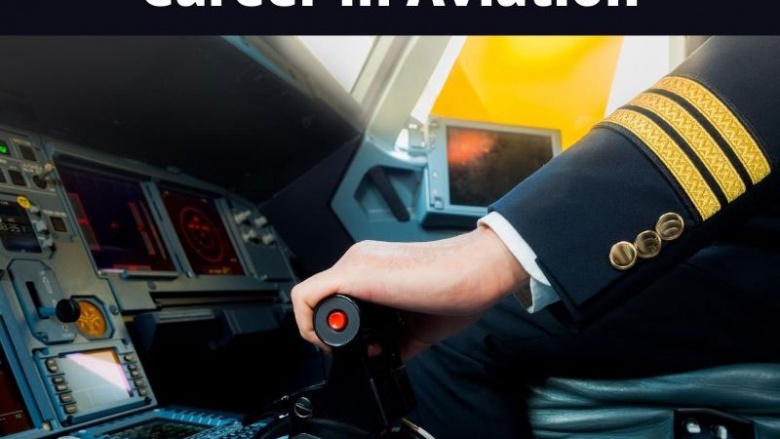Top 10 Reasons Why Every Pilot Should Get An Instrument Rating
If you want to know reasons every pilot should get an instrument rating, this post will tell you everything. Read on to learn more!
Obtaining a private pilot’s license is no small achievement. Long hours of study and practice eventually allow the licensee to fly the type of plane they are trained in. A problem of only having a private pilot’s license without any other ratings is that there are limitations placed on what the pilot can do.
For example, a pilot without an instrument rating will only be able to fly on certain days, depending on the weather. In this article, we will discuss the top reasons why every pilot should receive an instrument rating and why you need to find the right flight school to do so.
1. You Can Fly During Less Than Perfect Weather
With a private pilot license, you can fly when the weather and visibility are sufficient. There must be enough visibility so that you can see while flying from one point to another. An instrument rating opens up many more opportunities for flight time as it reduces the restrictions you will have to fly. You trained to be a pilot and fly, and with an instrument rating, you will be able to do just that more often.
2. It Prepares You for Commercial Licensing
One of the required ratings you need to obtain for a commercial license is to train and pass an instrumentation rating. For those who wish to have a career flying any commercial pilot certificate and aircraft type, having this rating is a must. By establishing your instrument rating early, you will have more seat time and be ahead of the curve, to prepare you for a career in flying.
3. Become a Safer Pilot
Flying visually into adverse meteorological conditions is the leading cause of accidents and deaths in the aviation industry. Training in instrument flight rules will increase your chances of surviving poor conditions. With an instrument rating on your license, you will be able to operate in adverse conditions by flying with the plane’s instruments and not using your physical senses only.
4. Your Insurance Rates Are Less Expensive
The safer you are while flying, the less expensive your insurance costs will be. Insurance is a must for pilots as an accident can be catastrophic for the pilot and their family. With an instrument rating, pilots can save up to 5% of their current annual premiums. With the costs of flying, saving money where you can, is of a great benefit.
5. Your Plans Will Not Change
Pilots love to use aircraft to fly to a vacation destination or a long weekend visit. Let’s assume you have planned the trip months out and taken days off from your job to make the trip. As soon as the date rolls around with two days of cloud cover, it can ruin your vacation. Since you cannot fly in this type of weather you will either cancel your plans or make other arrangements. This can cost you money in the end, if you have nonrefundable bookings, or if you have to rent a car or book a commercial flight.
By having an instrument rating, your plans don’t have to change. You can use your rating to be able to fly with the cloud cover and salvage your trip.
6. Pre-Flight Planning Will Be More Efficient
By not making judgments based only on visual cues, you will plan out your flights for any surprises that may pop up. Every action has a reaction that must be planned for when flying. If you are forced to take a flight detour due to weather or other reasons, you will need to have a plan in place. Your instrumentation training will help with this and keep your flight free of any unplanned surprises you did not initially plan.
7. Automation Is More Efficient
As a pilot with an instrument rating, you will be able to use a plane’s automation functions, instead of relying on physical decisions and responses. By doing so, your flight will be more efficient regarding time spent in the air, fuel used, and lead to better scheduling. This not only saves you money but reduces wear and tear on the plane. It also allows for a tighter flight plan that makes it easier for airports to keep your landings on time.
In addition, you may want to consider your multi engine training or just going on a few discovery flights over Los Angeles before you start!
8. Makes for a Better Pilot
Knowledge learned while in instrumentation training makes you a better pilot overall. You have the physical and decision-making skills from earlier training. With instrument training, you will have gained more knowledge of how an aircraft works and how it responds in poor conditions. The extra time spent in the plane training with an instructor will only hone your flight skills even more.
9. Your Knowledge of Weather Will Increase
A heavy focus is attributed to changing weather conditions in instrumentation training. This type of training serves a pilot well once they can fly in less than perfect conditions. Learning how the weather may or may not react will increase a pilot’s decision-making skills when faced with poor weather. Not only will your flights be safer, but it makes future flight planning more manageable if you have any idea what the weather may do.
10. Understanding of Traffic Control
Having an instrument rating will also help with your ability to have a better understanding of air traffic in the area. This skill increase will give a pilot more confidence in flying in larger metropolitan areas with increased air traffic. With increased confidence, you will become a better pilot overall and increases your chances of moving into the commercial realm of flying.
Conclusion
Having a private pilot’s license is an outstanding achievement for those who have always wanted to fly. By adding an instrument rating a pilot will receive multiple benefits. An instrument rating will increase a pilot’s knowledge, safety, save them money, and make them a better pilot overall.
Becoming a better pilot will also help you move forward in the commercial pilot field, where instrument training is a must. The more confidence and seat time you receive while gaining an instrument rating will serve a pilot well into the future.
If you are in Los Angeles, California or anywhere else for that matter, you may want to consider Ascent Aviation Academy. We are located at VNY Airport in Van Nuys, CA. Our address at VNY is 16425 Hart St Suite 101, Van Nuys, CA 91406. You can visit our Google page here for a map and directions to our flight school.
We hope this post has outlined reasons every pilot should get an instrument rating and wish you all the best.




